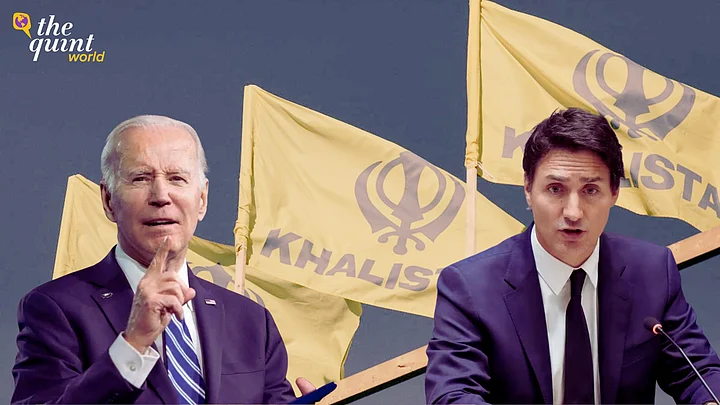Almost a week after Canadian Prime Minister Justin Trudeau alleged India's involvement in the murder of Khalistan Tiger Force (KTF) Leader Hardeep Singh Nijjar, US Ambassador to Canada David Cohen said that “shared intelligence among Five Eyes partners” assisted Canada in identifying a potential link between “agents of the Indian government" and the killing.
The Five Eyes alliance includes the United States, United Kingdom, Australia, Canada and New Zealand.
Speaking to Canada's CTV news, the envoy said, "There was shared intelligence among Five Eyes partners that helped lead Canada to making the statements that the Prime Minister made.”
Previously, The Quint had reported that "SIGINT (signals intelligence) inputs and human intelligence inputs, specifically reports about Indian officials and Indian diplomats in Canada were sent by the Five Eyes intelligence alliance."
Moreover, sources in Washington DC had told The Quint that the United States was "one of several Five Eyes nations" who raised their concerns regarding Nijjar's murder during the G20 Summit in New Delhi, after it was brought to their attention by Justin Trudeau
Cohen’s comments, confirming the Five Eyes' assistance, comes just a few days after US Secretary of State Antony Blinken said that the US is “deeply concerned” about the allegations and is “closely coordinating” with Canada on the matter.
US National Security Adviser Jake Sullivan on Thursday dismissed such suggestions, said that the US takes the allegations “seriously” and added that Washington will defend its principles without considering its relationship with the country in question.
Cohen seconded the US NSA and said that the US is taking the allegations "very seriously."
Canadian Prime Minister Justin Trudeau had alleged the involvement of Indian government officials in the killing of Hardeep Singh Nijjar, alleged to be involved in separatist activities.
Trudeau said that Canadian security agencies had "credible" evidence that "agents of the Indian government" had assassinated Nijjar, who was a Canadian citizen.
“And, you know, if they prove to be true, it is a potentially very serious breach of the rules-based international order in which we like to function,” he said. “We think it’s very important to get to the bottom of it,” Cohen said.
India had "completely rejected" the claims and went ahead to publicly declare its concerns at "Khalistani terrorists and extremists, who have been provided shelter in Canada and continue to threaten India's sovereignty and territorial integrity."
Moreover, while David Cohen did not comment on whether the intelligence was human and surveillance-based or signals intelligence of Indian diplomats, he said that there was “a lot of communication” between the US and Canada.
“Look, I will say this was a matter of shared intelligence information...There was a lot of communication between Canada and the United States about this, and I think that’s as far as I’m comfortable going," he said.
